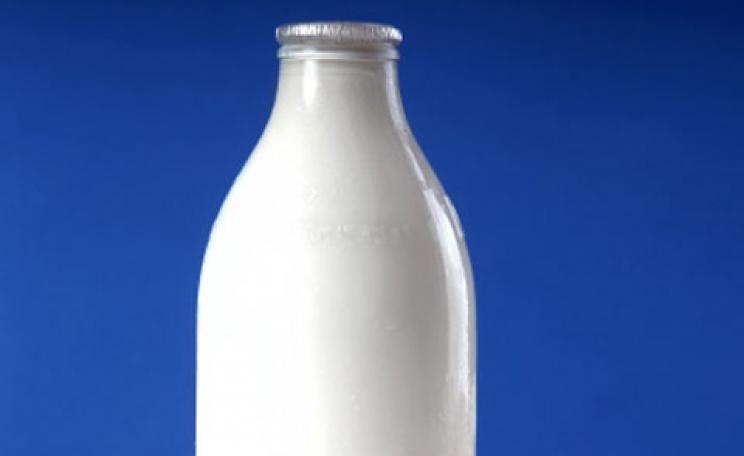The Soil Association believes that industrial farming practices have contributed to a significant decline in biodiversity and that organic farms are havens for wildlife, by encouraging a diverse ecosystem which protects birds, bees and mammals.
This claim is backed up by some impressive data, including a literature review of 66 comparative studies published in Applied Ecology in 2005, which concluded that on average wildlife is 50% more abundant on organic farms. This also remains a key selling point for the organic brand, with one in three shoppers confirming they buy organic food because they believe organic farms to be kinder to livestock and wildlife.
However the wildlife friendly image of organic farmers is about to be seriously undermined by the Soil Association’s support for the highly controversial badger cull policy. This issue like never before has sparked a national debate about how we value our wildlife over the interests of the farming industry and finds the Soil Association in the unusual position of being lined up with the National Farmers Union against all the major wildlife and conservation groups in Britain.
Indeed many organic farmers have been key payers in the National Farmers Union campaign to call for a culling of tens of thousands of badgers and to have their protected status removed in order for farmers to kill as pests in an effort to reduce the spread of bovine TB in cattle.
With the latest Soil Association Annual Report showing organic product sales declined by 1.5% in the UK in 2012 after a 3.7% drop in 2011, this could prove very damaging to the organic brand and lead to a further collapse in sales. This is supported by a poll which Care for the Wild International recently commissioned with You Gov, which showed that one in three organic shoppers would boycott organic dairy products, if they came from farms which participated in the badger cull.
It’s now time for the Soil Association to urgently review its policy on the badger cull, a good step would be to align their position with the Wildlife Trusts. Who despite being very conscious of the hardship that bovine TB causes in the farming community, believe that a badger cull is not justifiable and that efforts to tackle the disease should be centred on biosecurity and vaccination.
A view which is supported not only by wildlife and conservation groups but also by the latest national statistics from DEFRA on the incidence of bovine TB in cattle, which show incidents of the disease have hit a six year low between January and March 2013, following the introduction of tighter testing and cattle control movements at the start of the year.
By opposing the badger cull, the Soil Association will restore confidence in the organic brand as a defender of wildlife and will avoid being associated with a highly unpopular policy which has no scientific, economic or animal welfare justification. This move will also allow the Soil Association to brand their organic milk and dairy products as being badger friendly and this will no doubt lead to a much needed boost in sales in all the major supermarkets.
As the struggling organic sector competes for sales against the rapidly increasing market for RSPCA Freedom Foods and Fair Trade products, it cannot afford to lose public trust. Shoppers should have the reassurance of buying badger friendly organic products. It’s time for the Soil Association to make a stand on this issue and come out against the badger cull, the future of the organic sector might depend on it.
Dominic Dyer is a policy adviser to Care for the Wild
| READ MORE... | |
 |
NEWS ANALYSIS News investigation Badger cull a PR disaster for UK countryside, warn 'dissident' farmers A growing number of farmers are now questioning the nature of the cull and its effectiveness. And some are blaming poor biosecurity and intensive farming for the spread of TB in the UK cattle herd. Andrew Wasley and Sarah Stirk report |
 |
NEWS ANALYSIS COMMENT: Why the organic movement's badger cull stance threatens its image If the Soil Association joined those opposing the cull it would be able to brand its organic milk and dairy products 'badger friendly'- no doubt leading to a much needed boost in sales, says Dominic Dyer |
 |
NEWS ANALYSIS Wildlife in the firing line in global war against bovine TB Where there are cattle, there is the threat of bovine Tuberculosis (TB). The farming methods may differ greatly, but from the dairy farms of Ethiopia to the beef herds of Canada the race is on to find the best way to tackle the disease |
 |
NEWS ANALYSIS COMMENT: Boycotting organic farms over badger cull is 'counter-productive' Buying organic food is an important choice for everyone concerned about animal welfare, wildlife and conservation. It would not make sense for consumers to stop buying organic if they disagree with badger culling, says Helen Browning |
 |
COMMENT The great badger and bovine TB cover-up: is it really a health risk? With controversial plans to allow farmers to cull badgers later this year, Ed Hamer asks whether Bovine TB is really a health problem for either cows or humans |







